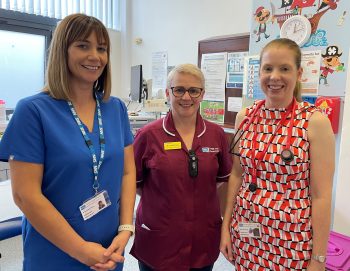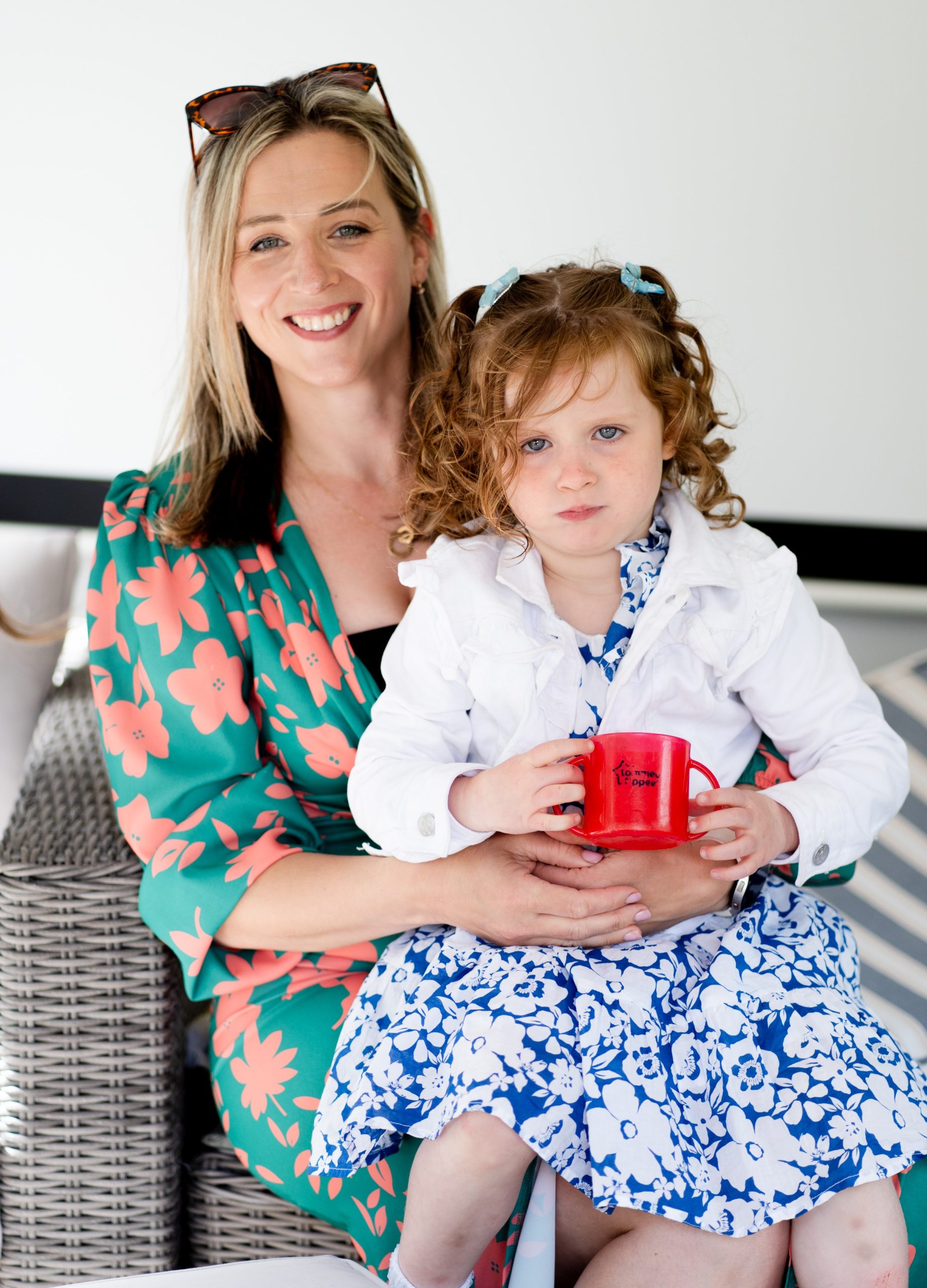
Four year old Cait McKinley was diagnosed with severe allergies to peanuts, milk, and eggs when she was just five and a half months old.
As her mum Catherine explains, it was a frightening time. “Before Cait was diagnosed, I think I was very ignorant about Anaphylaxis. As a Mum, you are always afraid and always trying to make sure your child is safe. The risk is never far from your mind, especially when she is not with me. I would never be more than 30 minutes from home, because I need to get to her if she has an allergic reaction. “
Catherine attends the Paediatric Allergy Clinic at the Ulster Hospital with Cait, where they receive expert support and guidance on managing her allergies. This Anaphylaxis Awareness Week, Catherine is sharing her family’s story to highlight the importance of understanding and managing allergies to prevent life-threatening reactions.
Allergic conditions are now the most common chronic condition for children in the UK. Up to 50% of children in Northern Ireland may be affected by an allergy. Access to high-quality care, accurate diagnosis and tailored treatment plans is vital for supporting children and families.
Catherine shared how managing Cait’s allergies has become part of everyday life. “You learn to deal with it. Everywhere we go, we carry her JEXT pen to keep her safe. As a family, it affects all of us. My other three children are very aware of allergies. In the early days, they even developed a bit of anxiety because they wanted to keep her safe. They are trained to use her JEXT pen and give her antihistamines if needed. We even do practice runs at home so they know what to do, it is about empowering them to act in an emergency.”
“Everything you eat has to be checked, everyone Cait is in contact with must be aware, it is something that is always there.”
Despite the challenges, the family continue to enjoy life as much as possible. “We still eat out, go to birthday parties and do the things we always would. It is not always easy, but we try to live as normally as possible.”
Dr Katy McConnell, Consultant Paediatrician in the Children’s Unit, who also lives with a severe allergy, added, “It is important to be aware of the signs and symptoms of Anaphylaxis, the initial sensation of throat closure or wheezing or becoming pale. It is also vital that family members and friends know what to do should Anaphylaxis happen. On the last occasion I had anaphylaxis, my husband was able to administer my EPI pen to me. If you are the person having Anaphylaxis, it might be difficult to undertake that, so speak out if you are feeling unwell”.
“The signs and symptoms to look out for are throat closure, swelling, breathing difficulties, wheezing, compromised circulation, a drop in blood pressure, becoming pale or collapse. You do not need to have all of the signs. If you have one of these, do not hesitate to give the adrenaline device as it saves lives.
“Having an allergy does not mean that children have to stay at home and not go out, it is important that they have a good quality of life and can do things. So that is why we try in the Allergy Service to ensure that the children are leading a good quality of life. They will have their antihistamine with them when they go out and they will also have their adrenalin pen. This provides a safety net for them should they come into contact with something that they are allergic to, the pen can be used instantly.
South Eastern Trust, Consultant Paediatrician, Dr Caoimhe Glancy, explained the work of the Paediatric Allergy Clinic at the Ulster Hospital. “We are a multidisciplinary team, including Consultants, Specialist Doctors, Nurses and Dieticians. We treat all allergic conditions, including food allergies, eczema and environmental allergies and provide bespoke treatment plans for our patients.
“Anaphylaxis is a life-threatening medical emergency and although people might have heard of Anaphylaxis, understanding it is key. We want to raise awareness and for everyone to be aware of the signs and symptoms. We also want to encourage children to have some awareness of the signs and symptoms of Anaphylaxis, then they know the treatment plan for how to manage that condition to try to save lives.”
Catherine stressed the importance of awareness and education. “Knowledge is key. There are more people living with allergies than ever before. Taking the time to understand their experiences can literally save someone’s life.”
She praised the support she and Cait have received from the Ulster Hospital Allergy Clinic. “The staff have been invaluable, supportive, knowledgeable and always willing to answer my questions. For me, as Cait’s Mum, I try to be her role model. I want her to know her allergies will not stop her from doing anything and I am her voice, teaching her and others about staying safe while still living her life fully.”




